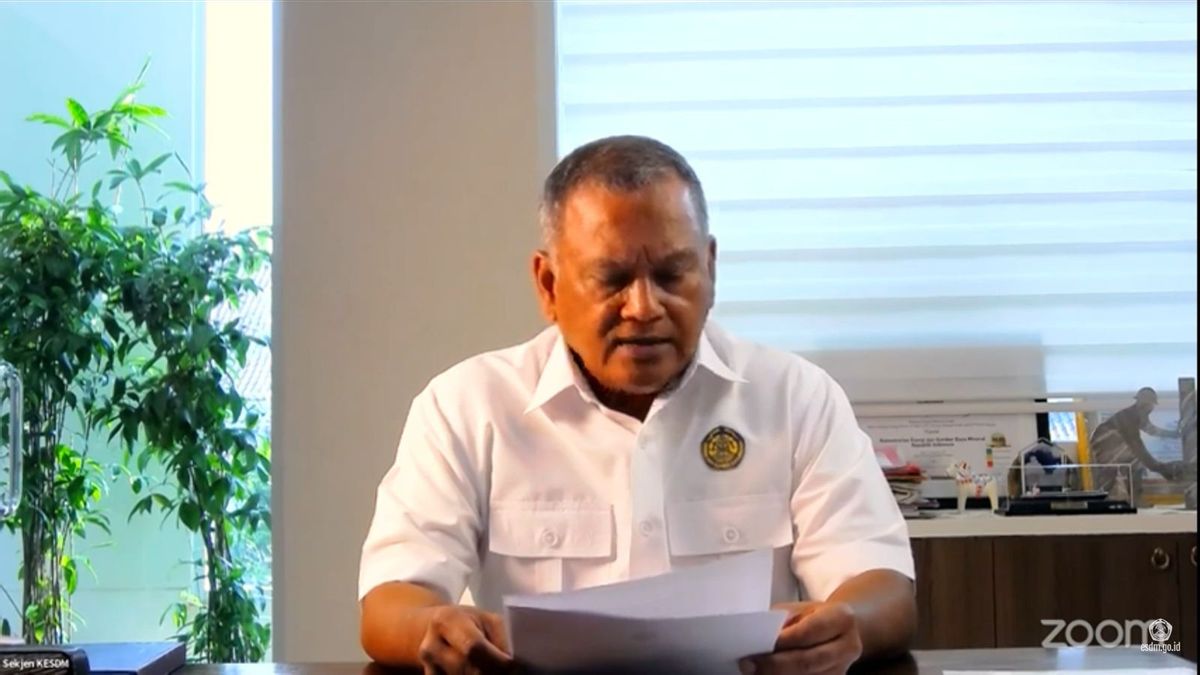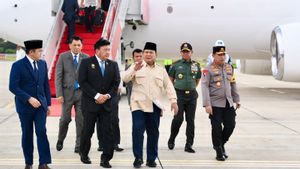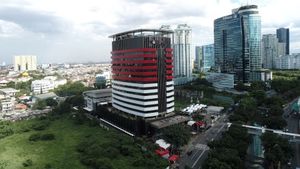JAKARTA - The Ministry of Energy and Mineral Resources (ESDM) supports the management of regional endowments (DAD) producing oil and gas, as well as mining to support attractive industries and maintain energy security in the future.
The Secretary General of the Ministry of Energy and Mineral Resources, as Chair of the MSG Forum, Ego Syahrial, revealed that the management of the Producer DAD has been regulated through Law Number 1 of 2022 concerning Financial Relations between the Central Government and Regional Governments (HKPD).
These regulations have brought about important changes to local financial management.
"One of them is the possibility of regions having Regional Endowment Funds (DAD). DAD is a fund sourced from the APBD that is eternal and the funds managed by it can be used for regional expenditures without reducing the basic funds," he told the media, Wednesday, July 20.
Furthermore, Ego said, the very high increase in oil and gas and mining commodity prices this year created a very large windfall for state revenues, including a direct impact on the allocation of regional revenue-sharing funds.
"For the regions, the increase in revenue should not necessarily be spent entirely but can be placed in the DAD container. The DAD allocation can be an option for cross-generational benefit with wider benefits, including in the context of maintaining future energy security," he added.
However, the HKPD Law requires that the principles of managing endowments need to be established by local regulations, managed by the regional general treasurer, and carried out in investments that are free from impairment risk.
The discussion in the Thematic Policy Dialogue is a follow-up to the input from the Multi Stakeholder Group Forum (MSG) which was held in May 2022, which proposed a discussion regarding central and regional financial management and plans for the use of endowments for sustainable economic development, especially in the regions.
"This dialogue is also an effort to encourage increased transparency in the management of extractive industry revenues at the central and regional levels, within the framework of implementing EITI requirements number 5.3, namely the management of revenues from oil and gas and mining resources," concluded Ego.
The use of DAD can also be synergized with energy sustainability, such as the development of renewable energy in the regions, which is outlined in the Regional Energy General Plan (RUED).
Through the implementation of the HKPD Law, oil and gas and mining producing regions can increase their revenue capacity.
For areas producing natural resources (SDA) of oil, natural gas, minerals, and coal, the DAD scheme is very useful.
Local governments in the border areas of producing areas benefit from the issuance of the HKPD Law.
In the previous regulation, the results from the managed resources were distributed to the origin or producing regions and non-producing regions but in the same province.
The HKPD Law amends the provisions of the previous law, which stipulates that DBH will also be given to border areas even though they are in different provinces.
These changes can provide an opportunity for regions to better plan the use of revenues from natural resources for the welfare of their communities.
Besides being able to facilitate multi-stakeholder group communication to be able to hear and discuss directly, this discussion is expected to be an input in the preparation of derivative rules of the HKPD Law which is currently being prepared.
The English, Chinese, Japanese, Arabic, and French versions are automatically generated by the AI. So there may still be inaccuracies in translating, please always see Indonesian as our main language. (system supported by DigitalSiber.id)













